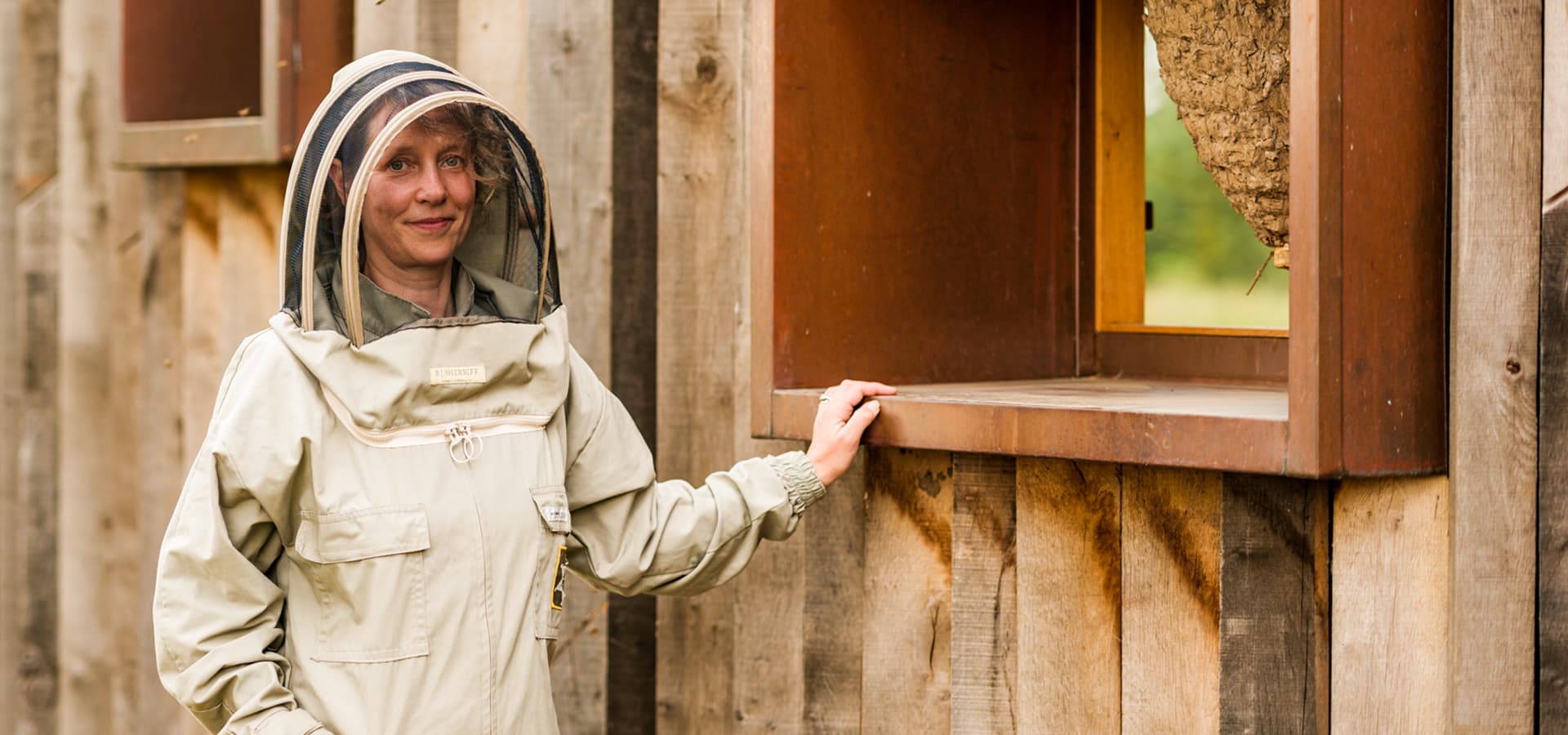Out of office spotlights pioneers who have decided to pursue their passions beyond the typical 9-to-5 job.
Paula Carnell is the resident Beekeeper at The Newt in Somerset,. Her mission is to pioneer a new way to raise chemical-free, native bees and spread the word on the healing powers of honey. Her story is inspirational and important to the planet while embracing the perfect Out of Office lifestyle.
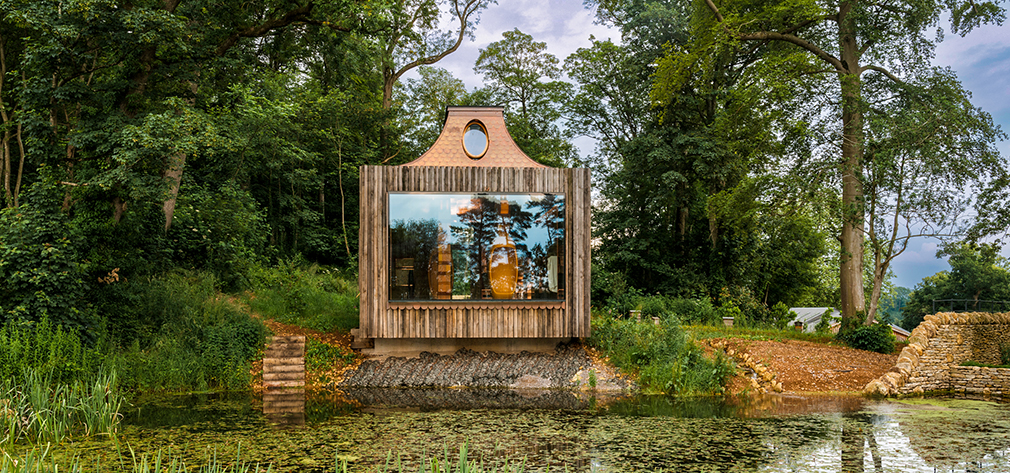
As a global bee consultant and honey sommelier, Carnell is passionate about raising chemical-free, native bees and the healing powers of honey. With antibacterial and antifungal properties and moisturizing and hydrating qualities, honey can help us stay healthy year-round – from boosting immunity and soothing sore throats, to relieving dry skin and chapped lips. It was through a personal illness that she first discovered the joys of beekeeping and honey’s natural health benefits. Carnell used that time to study the benefits of herbal medicine and natural bees’ products, after being gifted a beehive from her husband – who works alongside her as The Newt’s Cellar Master, heading up the cyder department. Today, there are 16 healthy, chemical-free colonies set across seven tree hives at The Newt.
How long have you been a beekeeper and honey sommelier at The Newt in Somerset?
I’ve been working with bees for the past ten years and they’ve become my life’s work. My husband built me a hive whilst I was bed and wheelchair-bound with Ehlers Danlos syndrome. Having previously worked as an artist, exhibiting around the world, I suddenly found that I was unable to paint, or work. With no expected cure, I had to adapt, thinking about what I was able to do rather than what I could no longer achieve.
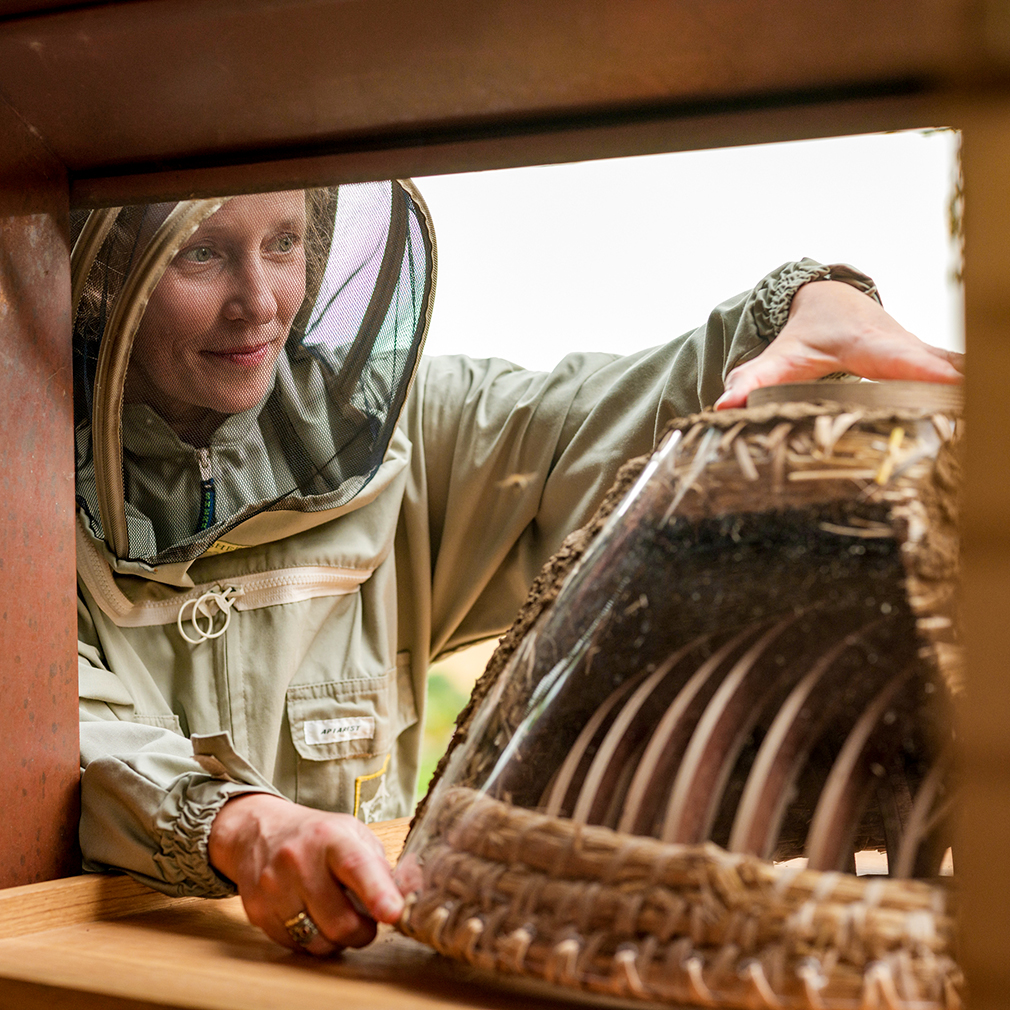
How did you cultivate this passion and make it a career?
I knew that I could watch bees from my bedroom window and that’s how it started. My mentor Chris Wright would visit and take care of the bees for me; when able, I would join him and learn from him. I asked lots of questions, and as I recovered, took over the bee care and my colonies expanded. I learned about the benefits of propolis, and how important the honey was for the bees to feed themselves on. I then became passionate about educating everyone about the parallels between bee and human health. When I was asked to help with bees at The Newt in 2016, I was so excited to put my imagination and dreams into reality, working with the wild colonies across the woodland and practicing keeping bees in a naturopathic way – just as I had recovered my own health. It now gives me such joy to be able to walk around the gardens, recording the various species of bees living there, and most of all, leading visitors around on Bee Safaris sharing the stories of our colonies.
So are the Bee Safaris/tours back on the schedule?
Yes, Bee Safaris run Monday to Friday at 2.30pm charged at £10 for day visitors or free for hotel guests. The safari starts at the Threshing Barn and ends in the Beezantium.
Tell us about the main healing powers of honey?
There’s plenty of research about the health benefits of honey and the healing powers of honey are undeniable – it boasts many antibacterial, antifungal and moisturizing properties that help to boost immunity. This is especially true of the trace minerals, vitamins and amino acids in raw honey. In particular, honey preserves the medicinal properties of plants so single-variety honeys are extremely interesting. On the Bee Safari, I explain how important honey is for both bees and humans; bees need honey to make wax for their hive, and to feed on throughout the winter, so we always leave enough for them, too.
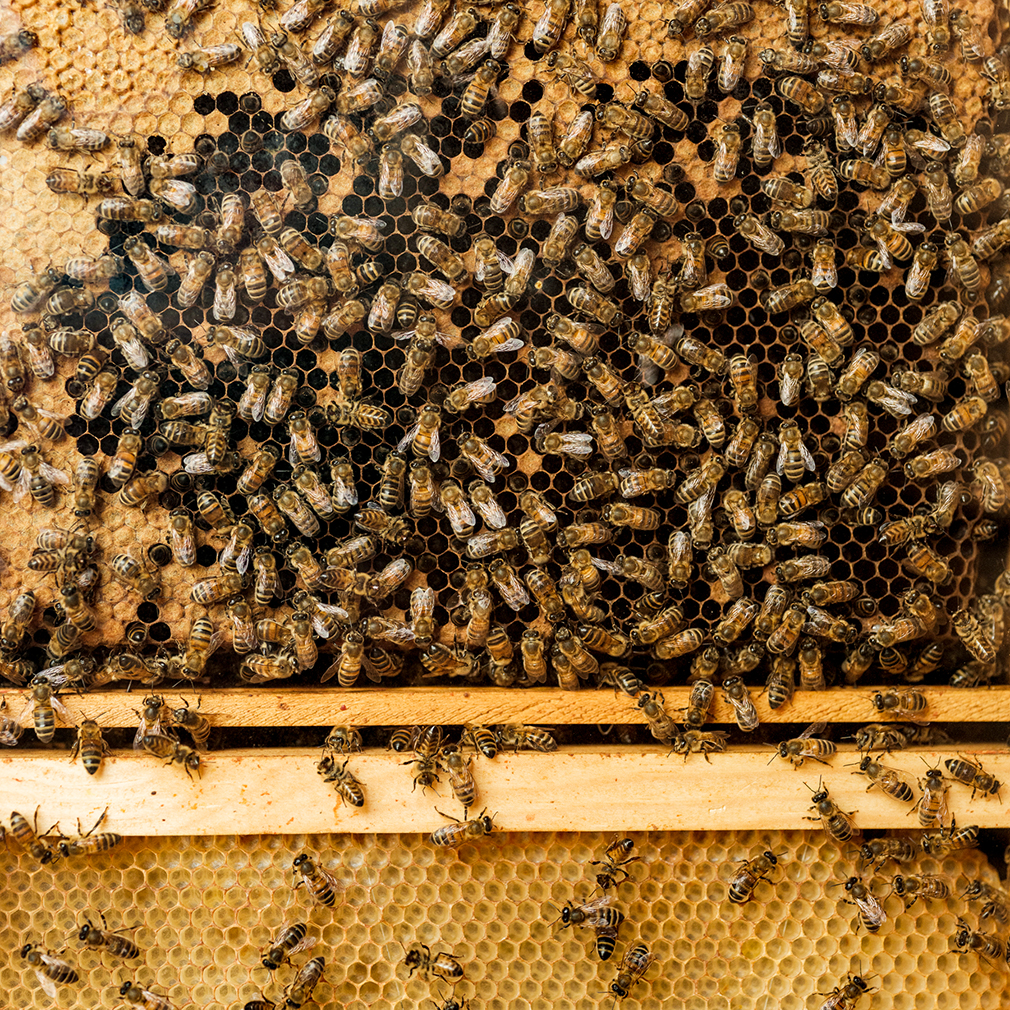
Can you explain your unusual approach to feeding the bees?
It depends on the time of year and the weather but each colony needs one acre of flowering trees and plants to feed them; if they are in an area that can’t sustain them, or is too toxic, they need to be moved! We always ensure that our bees are fed with their own honey, which sometimes means there’s no surplus for us to take!
Bees need to be moved before they wake up or after they’ve gone to bed, and so midsummer can regularly involve a 14-hour day. All my colonies are checked weekly. A full opening of a hive is done twice a year, or once a fortnight for new colonies to ensure that eggs are being laid and the queen is mated. Through the winter months, hives and hive parts need to be cleaned and repaired and painted with shungite and propolis. Bait hives need to be positioned and baited to entice new bees.
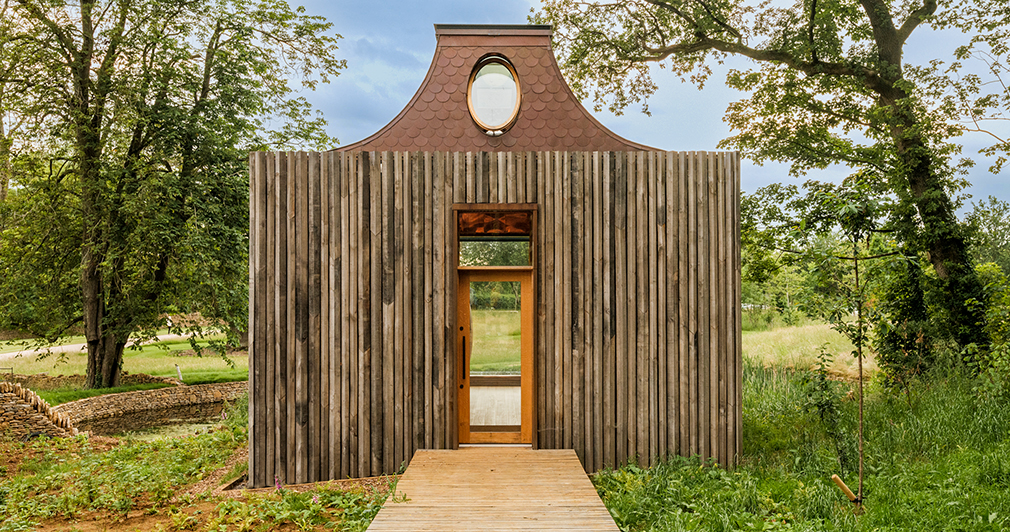
When the hives are busy collecting nectar, regular checks are needed to ensure the bees have enough space to store honey, and any signs of swarming are prevented by splitting the colony or observed and encouraged where possible to move into a bait hive.
Honey extraction is a busy and sticky process where the honey is removed from the hives. We don’t use smoke when opening hives to minimize stress to the bees. This means that we all need to be fully tuned to the characteristics and temperament of each of the colonies.
It’s not just about what happens inside the hive, but the environment surrounding them.
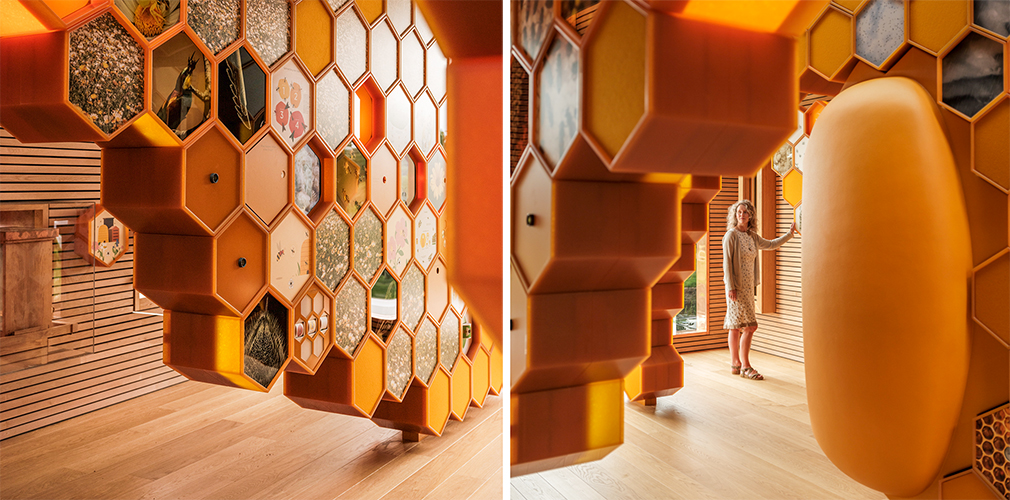
What do you want people to know about the importance of bees on our planet?
Working with bees and beekeepers in Oman, South Africa, The Netherlands, Madagascar, Mexico, Bhutan, Italy, America, Cocos Keeling Islands, Christmas Island, and Canada has given me global experience and insight into the problems facing bees on a global scale. Bees connect everything and are indicators of the state of nature. Bees are a key indicator species and without them, our entire ecosystem would be off-balance. It’s for that reason that we put so much love and care into The Bee Safaris at The Newt. Our aim is to not only show guests the many different hives at the property but to teach about bee conservation and development, so we can all play a part in protecting bees for generations to come.



